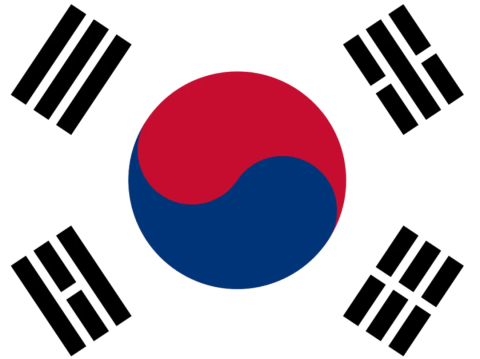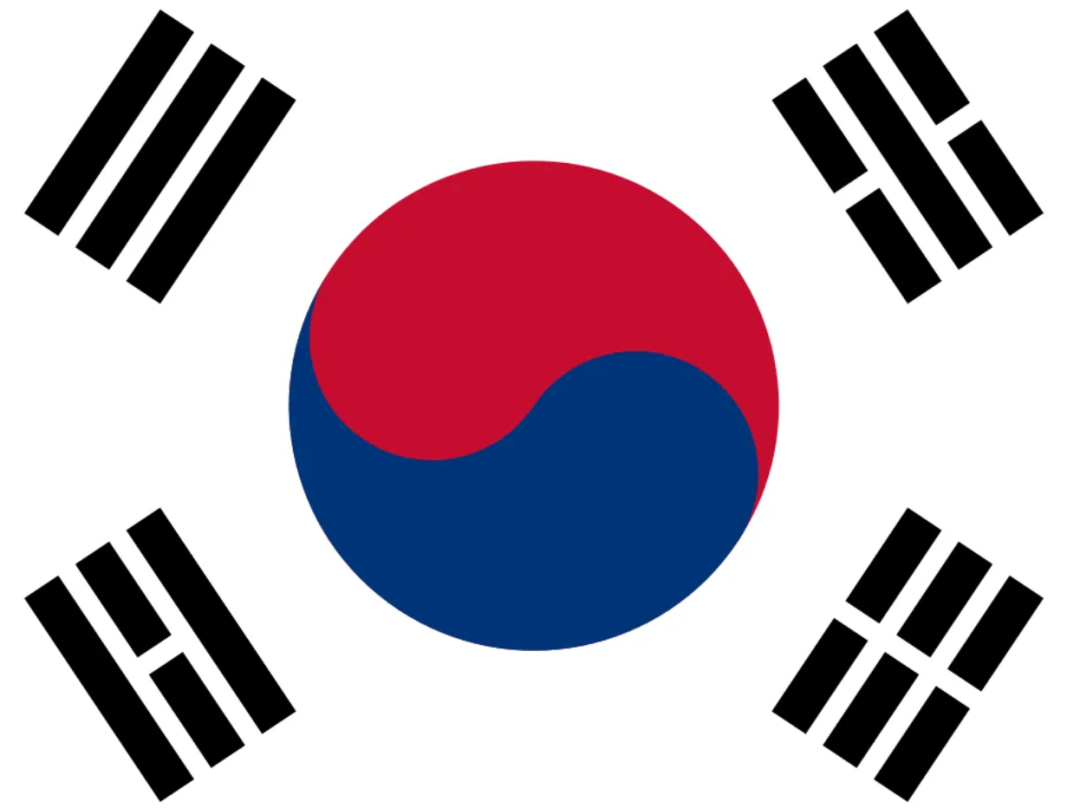
// Xiaopo Island has something to say:
///
NOTICE
The epidemic has lasted for more than two years, and the entry restriction policies introduced by various countries for epidemic prevention and control have seriously interrupted everyone's travel plans, especially international travel. I have previously introduced you to the visa guide for all Southeast Asian countries. This issue will continue to provide you with the application guide for South Korea, a popular tourist destination in East Asia, including the preparation of entry and exit materials. In the future, there will also be relevant air ticket and hotel recommendations. I hope it can help you if you want to travel abroad. friends.
1. South Korea

The Republic of Korea (Korean: 대한민국, English: Republic of Korea), referred to as "South Korea", is located in the southern part of the Korean Peninsula in East Asia. Korean is commonly spoken and has a total population of approximately 52 million. Like Japan, it is one of China's neighbors with a long history and is also a popular tourist destination. It has many well-known tourist attractions, such as Gyeongbokgung Palace, Panmunjom, Joseon Royal Tombs, etc.
The Ministry of Justice of South Korea (May 19) announced that short-term tourist visa entry will be resumed from June 1. Citizens of general countries (Leve1) can apply for short-term visits for business activities, tourism, recuperation, family visits, meetings, etc. Visa (C-3) for a maximum stay of 90 days. Those who already hold a short-term tourist visa to South Korea but have it suspended due to the epidemic will also have their visa validity restored. If the visa was issued before April 5, 2020 and is still valid, it can be used immediately without any special measures.

Jeju Island, source: Sohu
And South Korea announced in early May that it would resume Jeju Island’s visa-free policy for foreigners on June 1! According to relevant regulations, foreign tourists will be able to enter Jeju Island for sightseeing and stay for 30 days without a visa starting from June 1st!
The specific policies and materials required for travel are as follows:
who is qualified
The South Korean government stated that tourists must meet the following conditions:
1. Be fully vaccinated against the WHO Emergency Use List (EUL) vaccine and receive the second dose within 15 to 180 days before departure.
– If dose 2 was given before 180 days, a booster dose is required.
– Booster doses have no expiry date.
– People who contract COVID-19 after receiving 2 doses of the vaccine may be considered fully vaccinated without needing a booster dose if they can provide proof of recovery for verification.
– Unvaccinated children under 6 years old will be exempt from quarantine if they are accompanied by a fully vaccinated adult.
– Unvaccinated/partially vaccinated children 11 years and younger will be exempt from quarantine if accompanied by a fully vaccinated adult.
–Children aged 12 to 17 years who have received their 2nd dose at least 14 days before departure are considered fully vaccinated and do not require a booster.
2. Who is not eligible:
1) Unvaccinated/Partially Vaccinated 6 years and older (available through May 31, 2022)
2) Fully vaccinated individuals who have recovered from COVID-19 but still have a positive PCR test*
*Exceptions:
i) Korean nationals who have recovered from COVID-19 within 10 to 40 days of departure. Documentation must be provided, such as a recovery memo stating the date of a positive PCR test (ART is not acceptable) or the date of a PCR test showing a positive infection within 10 to 40 days of departure.
ii) Long-term visa holders who contracted COVID-19 in South Korea and entered South Korea within 10 to 40 days after testing positive. Long-term visa holders refer to people who hold at least one of the following valid documents: residence card, overseas Chinese residence permit, permanent residence permit or embassy ID card in South Korea.
Tourists who meet the above conditions are exempted from entry quarantine, but they still require pre-departure nucleic acid testing. The specific requirements are as follows.
Materials required
1. A nucleic acid test (PCR) within 48 hours before departure or a rapid nucleic acid test (ART) at a medical and health institution within 24 hours, and another PCR test within 3 days after arrival.
*If you want to be tested directly at the airport, you can make an appointment through the following website:
safe2go pass.com
2. Register Q-Code
—Passengers (including Koreans) must upload vaccination records and pre-departure PCR/RAT test results to the Q-Code system (https://cov19ent.kdca.go.kr/cpassportal/biz/beffatstmnt) before departure /main.do?lang=en). After registration, a QR code will be sent to the passenger's email address. (For details, please refer to the Q-Code user manual: https://overseas.mofa.go.kr/viewer/skin/doc.html?fn=20220421122909137.pdf&rs=/viewer/result/202205)
–Q-Code is valid once. Therefore, you need to register your Q-Code before each entry.
– If you need instructions on Q-Code or help with any technical difficulties, please contact the Korea Disease Control and Prevention Agency (KDCA) at +82-2-2633-1339. The embassy cannot assist you with Q-Code.
3. Round trip air tickets
4. Valid passport and visa
*Note: The above content is for reference only. For more detailed information, please refer to the official website of the Korean Embassy in Singapore:
HTTPS://overseas.magic.go.guest/is-eh/inhuman/no_2435/view.do?porn=761390&fear=1

Book source: Korean Embassy in Singapore
How to return
Singapore has fully opened up for vaccination travel as of April 1.The Civil Aviation Authority of Singapore (CAAS) will allow all fully vaccinated travelers from any country or region to enter Singapore quarantine-free, as long as they have not traveled within the past 7 days. Citizens, PRs, tourists and long-term pass holders who have visited any country or region restricted by the Ministry of Health only need to prepare the following materials before traveling to Singapore:
1. English version of proof of complete vaccination
2. Negative nucleic acid test result report within 48 hours before entering Singapore
3. Apply for and fill in the electronic version of the arrival card, namely the SG card, three days before entry. The filling URL is as follows:
HTTPS://E services.ICA.gov.is/SG arrival card/
4. Download the TraceTogether App, complete the registration and activate it after arriving at the Singapore Airport.
5. (If necessary) Those traveling to Singapore with a tourist visa are also required to purchase travel insurance with a minimum coverage of S$30,000 before departure and download the policy.
The above are all the materials and strategies needed to travel to South Korea. Once you have everything ready, you can wait to set off.

Gyeongbokgung Palace, source: Wikipedia

Panmunjom, source: Baidu Encyclopedia
At present, we have summarized the visa strategies for four Southeast Asian countries and one East Asian country for everyone. Later, we will summarize the visa policies around Singapore and popular travel destinations for Chinese people. Xiaopo Island will continue to summarize the visa policies for other popular countries in the future. Policies and related air tickets, hotels, ferry tickets and other information. If you have a destination you particularly want to know about, you can leave a message in the comment area or column~
